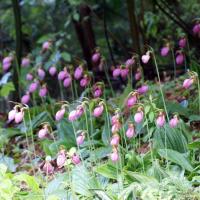Growing Security Intelligence: DARPA Proposes Plants as Sensors

Plants are amazing. We appreciate their beauty, yet we often take for granted that plants are also complex, self-sustaining organisms capable of sensing changes in their environment and responding. To that end, the U.S. Department of Defense is researching using plants to detect threats in the national security landscape.
Much like the canaries once used in the coal mines to provide advanced warning to miners of dangerous gases, plants are a sentinel species. They respond to light and temperature, but in some cases to chemicals and pathogens as well.
The new Advanced Plant Technologies (APT) program established by DARPA, the Defense Advanced Research Projects Agency that develops emerging technologies for the military, will explore ways to use plants' natural responsiveness to their environment as a military sensor to detect and report on the presence of threats such as explosive devices or radioactivity. DARPA’s APT program will research modifying the genomes to extend certain plant physiology capability to sense and respond to certain chemicals, pathogens, radiation, and even nuclear threats in the environment. The goal is that the signals from the plants could be monitored remotely, reducing the danger to humans from, say, a landmine.
“Emerging molecular and modeling techniques may make it possible to reprogram these detection and reporting capabilities for a wide range of stimuli, which would not only open up new intelligence streams, but also reduce the personnel risks and costs associated with traditional sensors,” said Blake Bextine, the DARPA Program Manager for APT.
If you’re interested, DARPA will hold an Advanced Plant Technologies Proposers Day. A detailed Special Notice is available at: https://go.usa.gov/xnB4M.
The native plants found naturally within your region are already serving as sentinel organisms, affected by disease, insects, and the effects of climate changes. Keep that in mind as you’re walking along a woodland path in the early spring and spot a pink lady’s slipper orchid. Admire them in nature, but don’t pick these flowers. They’re doing work!

